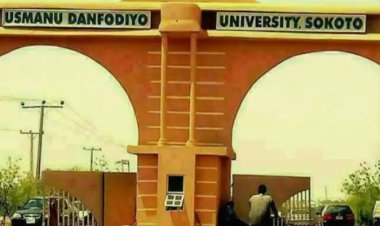The Director of the Centre for Energy FULafia advocates investment in agriculture to reduce inflation
The Director of the Centre for Energy FULafia advocates investment in agriculture to reduce inflation

The Director of the Centre for Energy Studies, Federal University of Lafia (FULafia), Prof. Emmanuel Hala Kwon-Ndung, has advocated for increased governmental investment in agriculture to reduce economic inflation.
Prof. Kwon-Ndung spoke at the 3rd Edition of the GreenLand News Magazine 2023 Annual Lecture/Award, held in Abuja, recently, with the theme: “X-Raying Nigeria Persistent Rising Inflation, Causes, Solution: Way Forward.”
Read More: FULAFIA Vice Chancellor urges faculties, departments, units to work for good of varsity
Delivering the keynote address, Kwon-Ndung noted that agriculture is central to sustainable development and critical to generating employment in rural areas, supporting the economy in farming communities and ensuring food security, adding that the sector has an essential role to play in improving Nigeria's GDP.
He said that investing in the agricultural sector to improve food production and security can reduce food-related inflation, noting that Nigeria’s inflation was mainly orchestrated by the increase in the prices of foods.
He said: "We have cost-push inflation as sellers are passing on the higher costs of bringing goods to the market.”
According to Kwon-Ndung, a multi-sectoral approach was needed to promote agricultural production along the value chains, lamenting that the use of direct intervention funds has failed to slow down inflation in Nigeria.
He identified other causes of inflation in Nigeria to include “availability of illegal funds in the hands of many, inflation from import-intensive and dependent economy, price gouging from those ready to exploit consumers, hoarding, poor data management due to the large informal economic activities and the fact that many get away with doing the wrong things.”
Kwon-Ndung suggested that Improving security on farms and tackling logistics bottlenecks around moving foods across the country would reduce pressure on foods prices and reduce food inflation.
He also recommended for government to consider promoting regional African foods trade by re-opening the borders and cutting tariffs on imported foods, improving tax collections and reducing fiscal deficits.
See Also: Knowledge enhances leadership performance, says FULafia VC
Prof. Kwon-Ndung said that addressing infrastructure challenges was essential to reduce production costs and improve the supply of goods and services.
He said: “Raising public awareness about inflation and its impact can help in managing inflation expectations. The public perception and understanding of inflation can help reduce wage-price spirals. Reducing over reliance on oil exports and diversifying the economy can make it more resilient to external shocks and reduce vulnerabilities to inflation.”
Highlights of the occasion includes award presentation to Kwon-Ndung and other individuals who have contributed to the development of the country in their respective fields.

 Amanna
Amanna 



